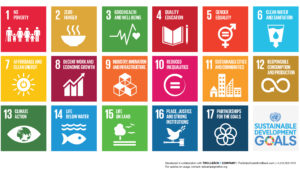
Die Verabschiedung der SDGs wurde von Politikern weltweit gefeiert, als ob mit der Unterzeichnung auch schon die Zielerreichung gelungen wäre. Die eigentliche Herausforderung liegt aber nicht in der Formulierung unverbindlicher Absichtserklärungen, sondern in deren Umsetzung in konkrete Handlungen. Wie kann sichergestellt werden, dass die SDGs nun nicht stillschweigend in der Schublade verschwinden, sondern ihr Kerngedanke zum verbindlichen Bestandteil nationaler und internationaler Politik wird?





